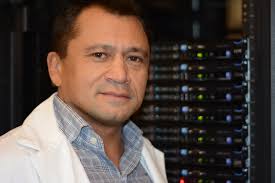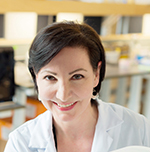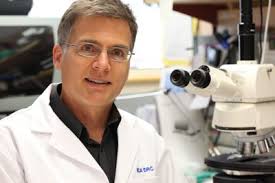Production of cancer-killing isotopes and creating more personalized treatments for respiratory diseases are among the eight projects receiving major grants from the Canada Foundation for Innovation.
The Faculty of Medicine received a total of $31.2 in this latest round of CFI funding, and the eight projects represent the majority of the 15 grants, totaling $52.2 million, awarded to UBC.
“Hearing about the scientists and researchers here at the University of British Columbia is truly inspiring,” said federal Minister of Justice and Attorney General of Canada Jody Wilson-Raybould, who made the announcement at UBC’s Djavad Mowafaghian Centre for Brain Health. “The projects that feature physics, health research, robotics and address various health conditions are examples of what Canadians can achieve when given the proper tools to excel. I am proud that our government can support such ground-breaking research, and I truly look forward to a future where our scientists will help to make Canada the best it can be.”
The largest grant, $9 million, will support a project led by Artem Cherkasov, a Professor in the Department of Urologic Sciences, that will create an integrated “bench-to-bed” precision drug discovery program focused on treatment-resistant cancers of the prostate gland, bladder and kidney. The platform will link and integrate the existing drug discovery capabilities at UBC, the BC Cancer Agency, the Vancouver Prostate Centre and the Centre of Drug Research and Development, and will make heavy use of UBC’s new cryo-electron microscope to rapidly capture protein structure.
“The Innovation Fund provides UBC researchers with critical funding for the space and equipment they need to advance research,” said Gail Murphy, UBC’s Vice-President, Research and Innovation. “We thank the Canada Foundation for Innovation and the Government of Canada for their ongoing support.”
Other projects in the Faculty of Medicine to receive support in this latest round of CFI grants:
— $4.5 million for further development of a platform for investigating traumatic brain injury (TBI) in animal models, led by Cheryl Wellington, a Professor in the Department of Pathology and Laboratory Medicine. The project stems from a technology invented at UBC called Closed Head Impact Model of Engineered Rotational Acceleration, which reliably produces diffuse axonal injury, the major pathology in human TBI. The research aims to develop biomarkers for TBI and more accurately predict recovery and long-term consequences.
— $4.3 million to acquire a hybrid positron emission tomography and magnetic resonance imaging machine (PET/MRI), led by Vesna Sossi, a Professor of Physics and Astronomy and Adjunct Professor in the Deparment of Medicine. The machine, to be housed in the Djavad Mowfaghian Centre for Brain Health, will allow scientists to “see” how neurochemistry overlaps with the brain’s energy consumption and how it affects brain connectivity. By revealing details about those processes, the team expects to gain a better understanding of most, if not all, brain illnesses.
— $4 million for a cancer immunotherapy program, led by Brad Nelson, a Professor in the Department of Medical Genetics. The team will build a suite of new biological engineering strategies to increase the precision, potency, and applicability of harnessing a patient’s own immune system to fight cancer, focused on moving discoveries from the lab to first-in-human clinical trials for cancer patients.
— $4 million to produce rare isotopes that can kill cancers but spare healthy tissue. The project, led by Professor of Radiology Francois Benard, will take advantage of the Rare Isotope Laboratory at TRIUMF, the particle physics facility located on UBC’s campus, to create a national bench-to-bedside radionuclide therapy program to improve outcomes for people with incurable metastatic cancer.
— $2.2 million to use genetic and related “-omics” technologies to discover different sub-types of asthma and chronic obstructive pulmonary disease (COPD) and create drugs that attack or reverse each of them. The project, led by Don Sin, a Professor in the Department of Medicine, will develop simple blood tests that can identify specific sub-types for each patient and use MRI to make sure that the new drugs prescribed for patients are actually working.
— $1.6 million to refine techniques for modelling and analyzing spinal cord injury, led by Wolfram Tetzlaff, Director of ICORD. The project will develop the next generation of equipment for simulating fracture-dislocation injuries in animal models, thus providing more clinically-relevant examples of the stresses on the spinal cord and the resulting tissue damage — essential information for the development of treatments and design of clinical trials to test treatments in humans. The researchers will use such models to search for biomarkers in cerebrospinal fluid, to conduct optical sectioning and three-dimintion modelling to better examine healthy and damaged tissue, and to evaluate motor, cardiovascular, urological, and sensory outcome parameters in animals.
— $1.6 million to obtain advanced retina imaging equipment for use on both animal models and patients at resolutions that will be higher than any other Canadian lab’s current capability. The project, led by Associate Professor Orson Moritz in the Department of Ophthalmology and Visual Sciences, will allow joint projects involving direct comparison of human patients and retinal disease models, facilitating new approaches to treating devastating and blinding eye disease.




